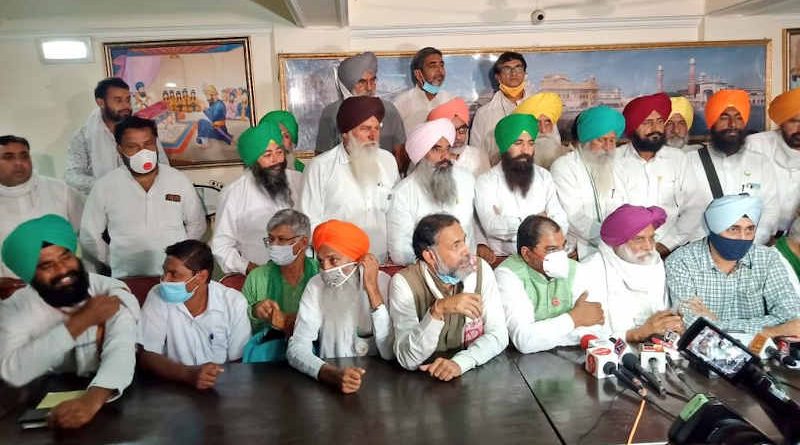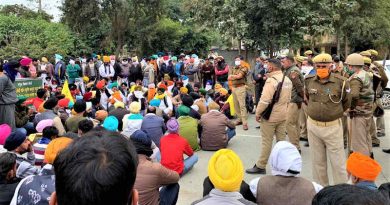Indian Farmers’ Struggle Against Farm Laws Going Haywire

In the absence of any wise leader, the farmers’ protests have already lost direction and are going haywire.
By Rakesh Raman
After some sporadic demonstrations in Punjab, a number of farmer groups in India have decided to hold a nationwide road blockade on November 5 to express their opposition to the farm laws recently introduced by the Indian government headed by Prime Minister (PM) Narendra Modi.
At a meeting held in New Delhi, the farmers have decided to stay united in their fight against three farm laws and the Electricity (Amendment) Bill 2020 proposed by the government.
Hundreds of thousands of farmers belonging to nearly 250 farm organizations are expected to continue their struggle under the banner of All India Kisan Sangharsh Coordination Committee (AIKSCC).
It is also planned to extend the smaller protests to a larger “Delhi Chalo” movement which is scheduled to be held on November 26-27 in the national capital. Farmers from all over the country are expected to assemble in Delhi to hold demonstrations so that the Modi government should withdraw the new farm laws.
However, the Modi government has maintained that its laws are supposed to benefit farmers and the government will not take them back. Modi has also said that the opposition parties are misleading the farmers so that they should oppose his government’s decisions.
Although the opposition parties and farmer organizations are protesting, they should know that Modi is not going to succumb. They would have seen the fate of the other protests such as the anti-CAA (Citizenship Amendment Act), which were crushed by the Modi government.
Similarly, the Modi government refused to change its stance on the abolished Article 370 in Kashmir, despite aggressive protests by the locals and political leaders. Most of the peaceful protesters are either being imprisoned under sedition and other draconian laws or they are facing brutal police action.
Obviously, farmers cannot and must not expect the Modi government to accept their demands for the withdrawal of the farm laws that they believe will harm the entire farming community and the Indian agriculture sector.
Moreover, in the absence of any wise leader, the farmers’ protests have already lost direction and are going haywire. There is no intellectual component in the farmers’ discourse, messaging is missing, data is scarce, and there is hardly any educative content that could help farmers embrace modern agricultural practices to increase farm productivity and profitability.
The protests are mostly ad hoc in nature as farmers do not have any road map to continue their struggle. The self-styled farm leaders claim that it is an all-India struggle, but so far the protests have been limited only in Punjab. The Punjab protests are mainly led by budding Punjabi singers, fledgling actors, and a few religious Granthis (Sikh priests).
It appears that they are trying to leverage the protests for their own professional gains because in all their events (mostly available as crude YouTube videos), they only talk about Sikh history and religion which have no relevance to the ongoing farmers’ struggle. They also shout derogatory slogans against Modi. Their hollow sloganeering has no effect on Modi.
Since the naive leaders have hardly any knowledge of the use of technology, modern farming techniques, frontend and backend planning processes in the agriculture business, they are delivering random sermons on Sikh history and religion and raise irrelevant slogans in thinly attended demonstrations.
Obviously, the audiences are more confused than enthused and such events will be more harmful than helpful for the already dwindling farmers’ movement.
By Rakesh Raman, who is a national award-winning journalist and social activist. He is the founder of a humanitarian organization RMN Foundation which is working in diverse areas to help the disadvantaged and distressed people in the society.





